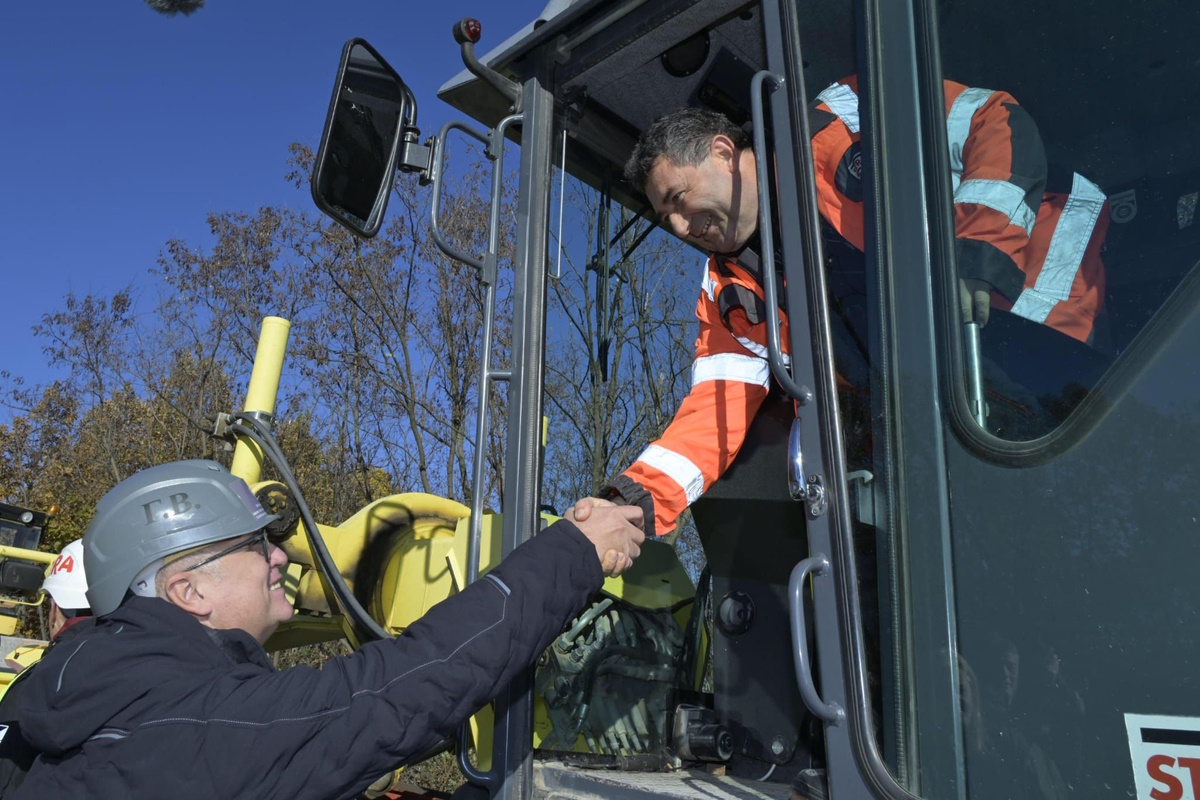The role of science and innovation in the green agenda with special reference to the construction industry was the topic of the second panel on the second day of the “Look Up 2” conference. Serbia’s partner company CRBC showed by its example the possibilities of progress through its role construction industry in the implementation of the green agenda plan.
Improving the ecological aspects of sustainable development is a key topic for all developed countries in the world. In the direction of application and development of innovations within the green agenda, Serbia has made certain advances.
The Minister of Science, Innovation and Technological Development, Dr. Jelena Begović, told the panel participants that time is not a luxury we can afford and that we must not wait for something to happen in order to react.
One of the key goals of sustainable development is based on the preservation of biodiversity, the maintenance of ecosystems in their natural state. An example of good practice and a serious step forward in this direction is the “Clean Serbia” project, which is being implemented in Serbia precisely with the aim of preserving a healthy environment, but at the same time raising the standard of living of citizens.
Aleksandar Vojvodić, China Road and Bridge Corporation (CRBC), a partner company of the Serbian state in the implementation of the mentioned project, said on the panel that this issue is a matter of civilization.
“Collecting and purifying sewage and releasing it into nature has an immeasurable impact on people’s health, the protection of land, water and air, and as such represents one of the prerequisites for environmental protection,” said Vojvodic.
According to the data presented by Vojvodić, CRBC has built over 400 kilometers of sewerage on the territory of Serbia, which is also the highest achieved pace of work.
“The project “Clean Serbia” included 5,200 kilometers of sewage on the territory of Serbia and about 500 water treatment plants. The third segment related to solid waste management centers, as well as the previous two, are prerequisites for the goals
these topics and this conference,” Vojvodić concluded.
In this way, the company CRBC showed by its example the possibilities of progress through the role of construction in the realization of the green agenda plan. The effective construction practice of the CRBC company has unequivocally confirmed a significant role in the promotion and implementation of sustainable approaches.
The Republic of Serbia adopted the Declaration of the Green Agenda in October 2020 at the Conference in Sofia and undertook to implement its actions through the Regional Action Plan that was adopted at the summit in Slovenia in October 2021. With this signing, Serbia committed itself to meet the objectives of the Paris Climate Agreement, and to comply with the EU acquis in all five areas covered by the EU Green Agenda for the Western Balkans.










